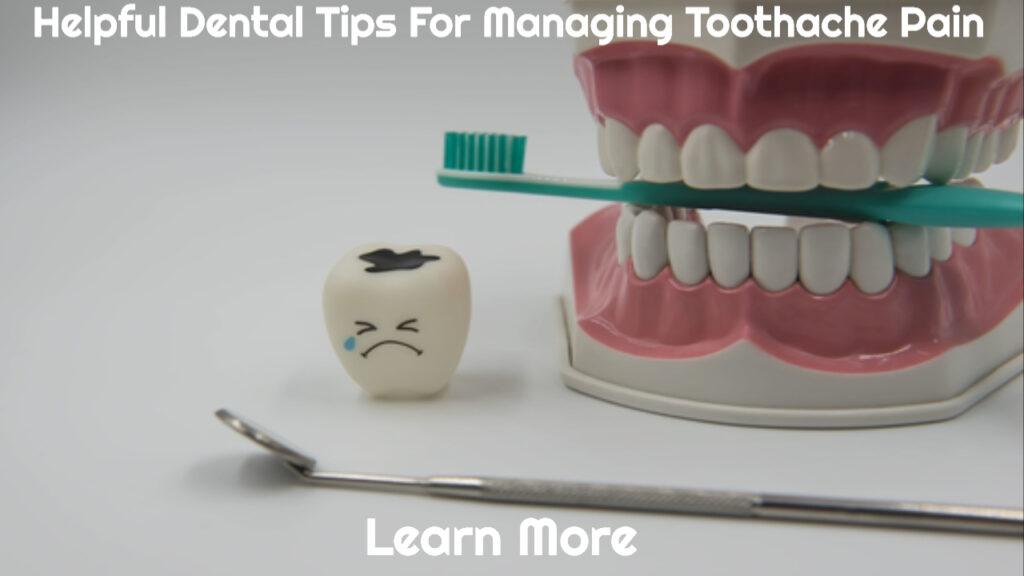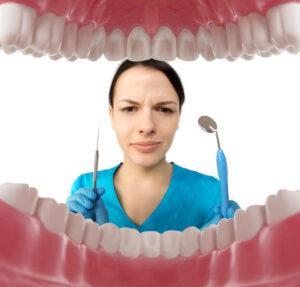
Helpful Dental Tips For Managing Toothache Pain
Toothaches – Solutions for Managing Toothache Pain
Whether due to an ongoing problem or a recent issue, toothache pain can often be unbearable. It can keep a person from focusing on anything but the pain in their mouth. The pain can make it hard to talk, eat, or drink. Even thinking can be challenging when dealing with tooth pain. This makes it essential for individuals to understand how to relieve tooth pain before the issue occurs.
Toothache Causes
Before a person can find the right solution to ease tooth pain, they must first determine the cause of the pain. Particular pain and dental issues respond better to standard treatments, while other types need a different solution.
Sharp pain is often caused by a crack, break, or some kind of damage to the tooth that exposes the pulp. Even when simply the dentin of a tooth is exposed, it can make the pulp very sensitive to temperatures, certain foods, or pressure.
Pain that is dull or throbbing and may involve the jaw area can be very bothersome. This pain could go on for days without any kind of relief. This type of pain often indicates an infection is present. There may even be an abscess causing the pain.
Saltwater Rinse
A saltwater rinse is one of the best methods for easing pain as soon as it starts. Simply mix half of a teaspoon of salt in one cup of warm water. Take small drinks of saltwater, but do not swallow. Then, swish the water around the mouth for thirty seconds, especially the affected area. Then, spit out the water and repeat.
The salt water will remove loose debris and food particles stuck in the gum or teeth. It can reduce inflammation and swelling and may help reduce the bacteria growth in the mouth. This can prevent open mouth wounds from becoming infected.
Over-the-Counter Pain Relievers
Pain relievers such as acetaminophen, ibuprofen, and naproxen are great toothache options. They can ease the pain and allow you to get back to your life until you can see the dentist. For children, only use acetaminophen due to the other pain relievers’ risks.
Aspirin is not commonly recommended for toothaches but can be used if no other health issues in the patient prevent its use. However, placing aspirin on the damaged tooth will not provide the needed relief and may even cause further damage.
Anesthetics
Pain-relieving gels and liquids are designed for tooth pain that often contains benzocaine to numb the affected area. The medication is applied directly to the sore tooth and nearby gum area. Unfortunately, these options only provide temporary relief and should not be used regularly.
Cold Compress
 If the tooth pain is causing the person’s face to swell, a cold compress is the best option for the first day. It can help minimize the pain and reduce the swelling to provide a little comfort. However, suppose the swelling is persistent or other signs of an infection, such as a fever. In that case, see a dentist as soon as possible.
If the tooth pain is causing the person’s face to swell, a cold compress is the best option for the first day. It can help minimize the pain and reduce the swelling to provide a little comfort. However, suppose the swelling is persistent or other signs of an infection, such as a fever. In that case, see a dentist as soon as possible.
Clove Oil
Clove oil can be rubbed directly on the sore area or even put on a cotton ball and placed on the tooth to relieve pain. This is because clove oil is a natural numbing agent that can work much like over-the-counter gels and liquids that contain benzocaine.
Hydrogen Peroxide Rinse
Hydrogen peroxide can be a good option for relieving pain caused by a dental issue. It can also reduce inflammation, kill bacteria, reduce plaque, and heal bleeding gums. Simply use a 3% hydrogen peroxide product and mix it with equal parts of water. Then, use it as a mouthwash to provide relief.
Garlic
Garlic is known to have antibacterial properties. Garlic even offers users some pain relief. For toothache relief, simply crush a clove of garlic into a paste and apply it directly to the area. Another option is to chew a clove of garlic.
Vanilla Extract
Vanilla extract is another option for relieving tooth pain and may taste better than some alternatives. The alcohol in the extract can help numb the pain and kill bacteria. Vanilla is also an antioxidant and can promote healing in the area. Simply apply a small amount of the extract directly to the tooth and gum area a few times each day.
When to See the Dentist
Any time there is pain, swelling, or any sort of damage to the teeth or mouth, make a dental appointment immediately. Depending on the problem, the dentist may see you immediately or within a few days to correct the issue. Putting off seeing a dentist will only cause the problem to become worse.
If the pain is severe or the mouth experiences a significant injury, an emergency room visit may be the best option. They can provide immediate treatment and refer the individual to a dentist for follow-up care.
Brought To You By: https://www.ariadentalofannapolis.com/
The post Helpful Dental Tips For Managing Toothache Pain appeared first on https://arquiaca.org
The post Helpful Dental Tips For Managing Toothache Pain appeared first on https://wookicentral.com
The post Helpful Dental Tips For Managing Toothache Pain appeared first on https://gqcentral.co.uk
The post Helpful Dental Tips For Managing Toothache Pain appeared first on https://alef3.com









